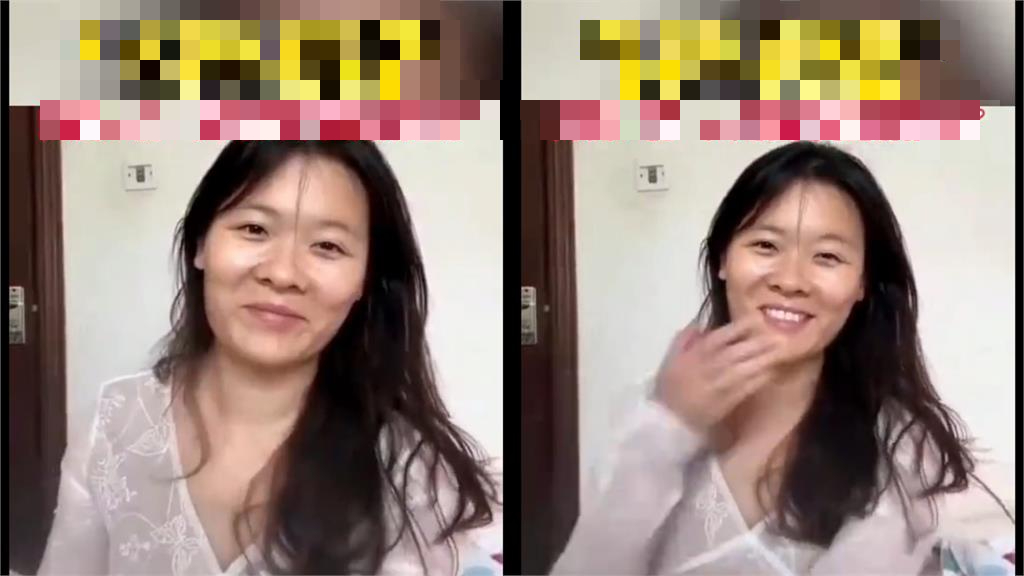Recently, a livestream video of a Chinese female streamer went viral on social media platforms when this hot girl performed a surprising action on air.
She turned off the beauty filter during the livestream. No one expected that, in just a moment of switching, the face of the “heavenly fairy” transformed into someone completely different, leaving netizens both shocked and buzzing with conversation.

According to images captured from the livestream, the hot girl initially appeared with a breathtakingly beautiful appearance.
Her long black hair flowed freely, adorned with a delicate flower crown, and she wore a sheer, sexy blouse. Notably, her large, sparkling eyes and flawless white skin made many viewers gasp in admiration. However, the climax of the livestream came from a surprising action when she decided to turn off all beauty effects just a few minutes into the broadcast. And then, the unexpected happened – in an instant, all “illusions” disappeared: her skin darkened, her eyes visibly shrank, her elegantly oval face “expanded” into a round shape, and her makeup completely vanished. This image left many fans “frozen in place” and unable to recognize the idol they had admired just moments before.

Many netizens compared this change to a mask-switching act in a circus. This humorous analogy reflects, in some way, the audience’s shock at this spectacular “face reveal”. After the clip spread on Weibo and Douyin, a flurry of comments ranging from surprise, outrage to humor flooded in. Most were incredulous that this was the same person, with some even expressing sympathy for the top donor on this hot girl’s channel.

Some even questioned the ethical standards of current streamers, arguing that using exaggerated effects to deceive viewers is an act of dishonesty, especially in a context where many fans are willing to financially support their idols through gifting on platforms. Alongside criticisms, there were also opinions suggesting that we should not be too harsh on the female streamer. A portion of internet users felt that the desire to “beautify” through technology is understandable in modern society, where appearance is often weighed heavily.